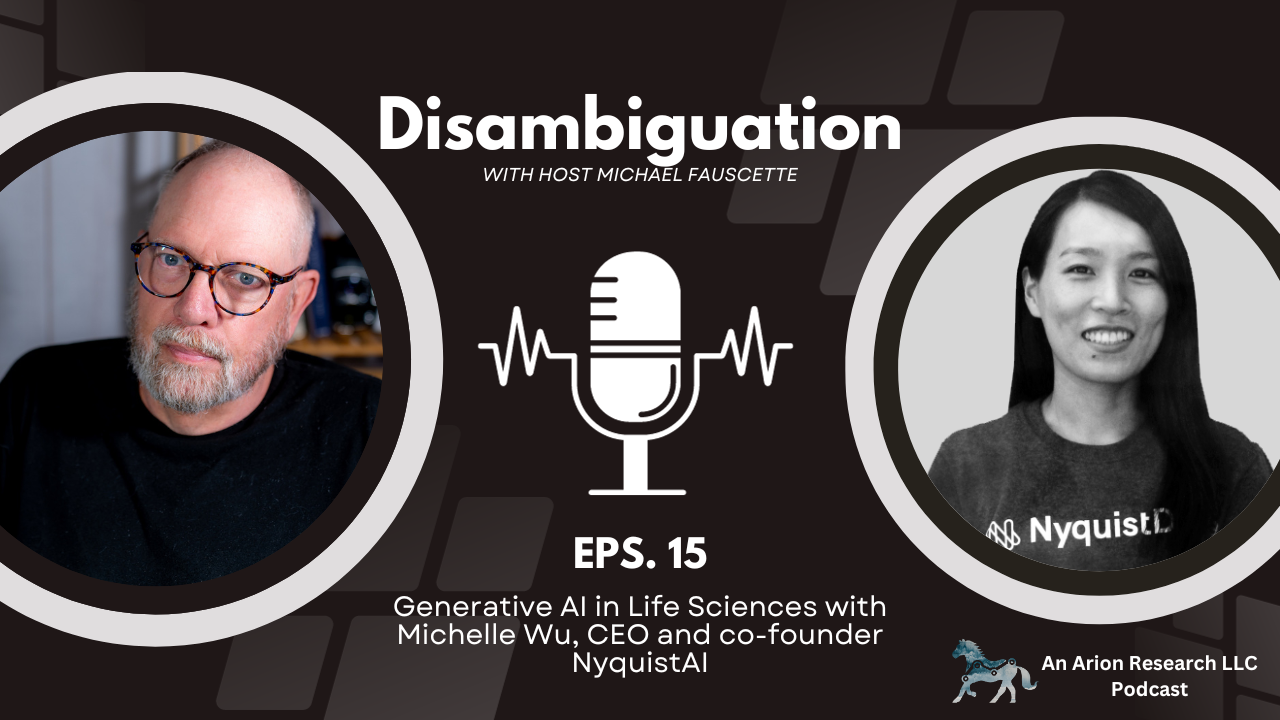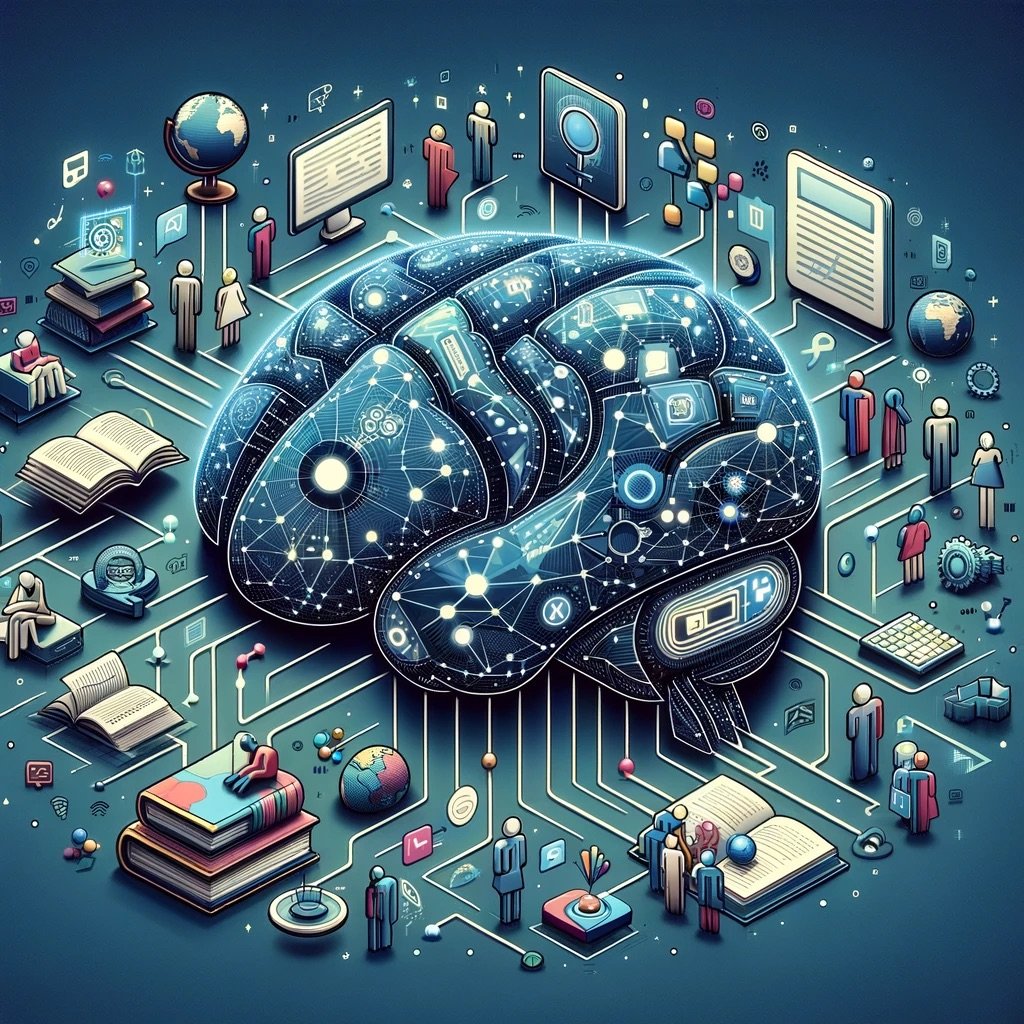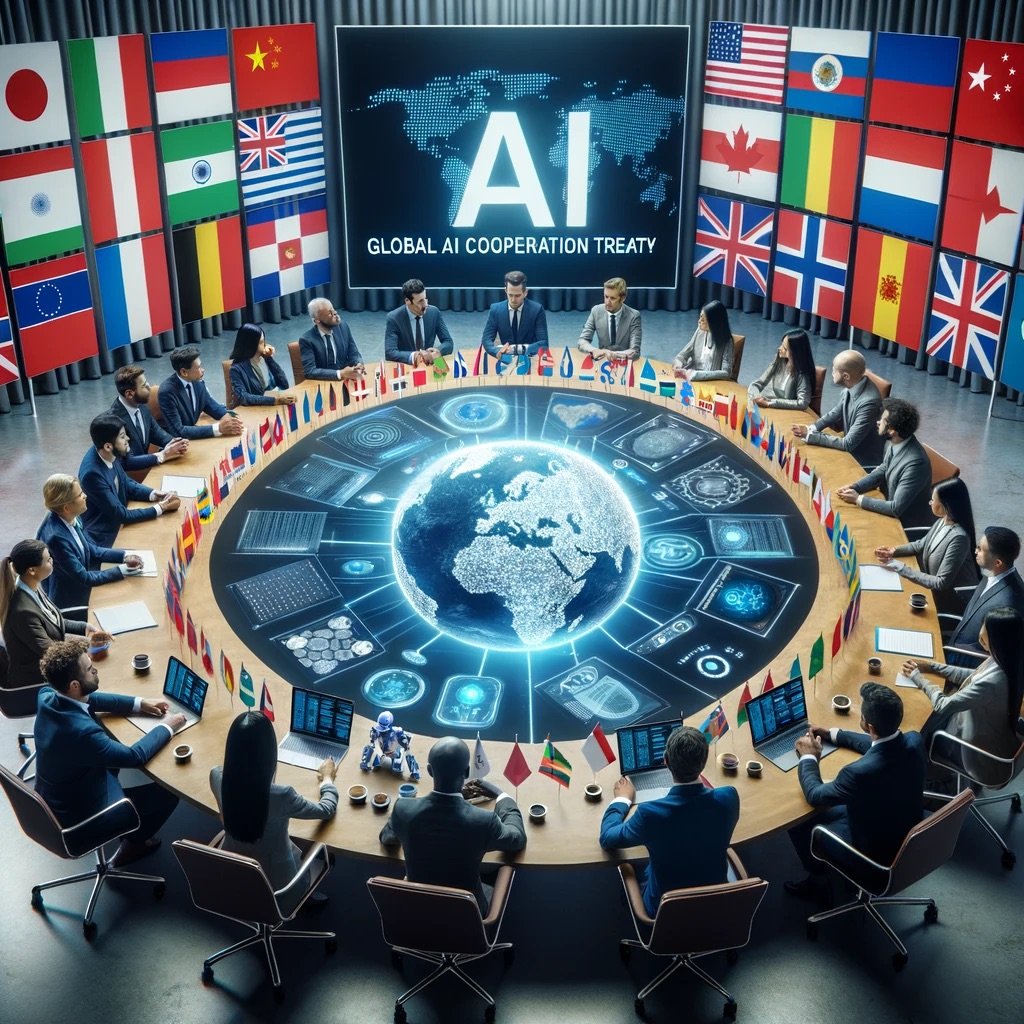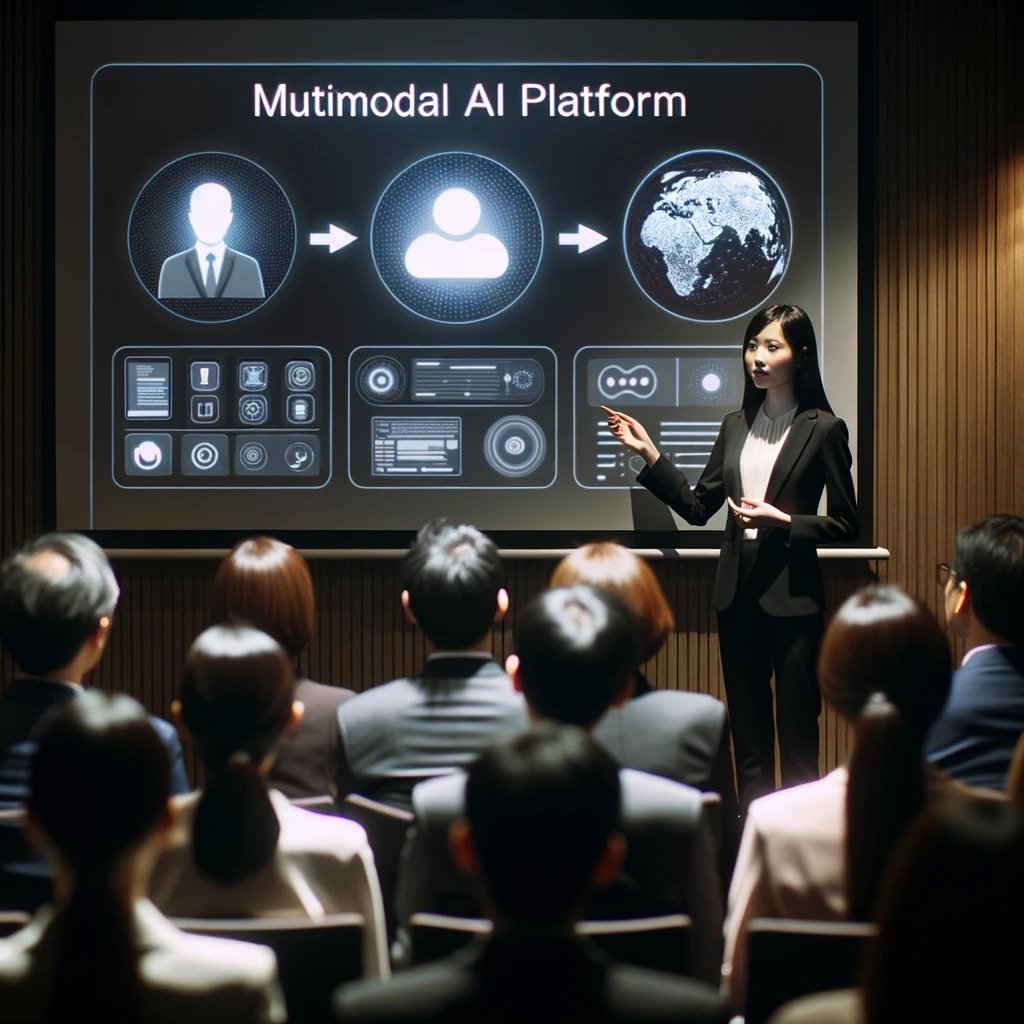
Customer Experience Trends for 2024
Customer experience (CX) is the cumulative perception and feelings a customer develops through their interactions with a company, encompassing every touchpoint from initial contact to post-purchase support. It's an all-encompassing journey that shapes the customer's view of the brand, influenced by the quality of customer service, ease of use, product satisfaction, and emotional connection. As businesses continue to evolve in 2024, understanding and enhancing customer experience has become a crucial element for success. This focus on CX reflects the growing recognition of its critical role in building brand loyalty, fostering positive word-of-mouth, and driving sustainable growth. In this context, exploring the latest trends in customer experience is vital for any business aiming to thrive in today's competitive marketplace.

The OpenAI Debacle - UPDATED
I’ve debated writing something on the OpenAI drama since the first announcement on Friday. Everytime I’d start there would be a new development / announcement / rumor. Just keeping up was nearly a full time job. And the story isn’t over at this point (Tuesday). There is a long list of articles and blogs and linkedIn posts on the subject, so sharing something new and useful is a challenge. There are some lessons in this somewhere though, so I’ll try to pull out some useful observations.

Artificial Intelligence: Beyond Generative AI
Over the past year the top tech topic has been generative AI. AI though, is not new, it has it roots back a few decades. While generative AI is a fairly recent capability, there are a number of other types that are currently in use across a variety of business use cases. Generative AI improves on some of those capabilities of course, but to really understand how a business can use AI to the best benefit, it’s helpful to have an understanding of the other types of AI, and how they can be used. The following graphic shows all the current AI types. It does not talk about future types though, like artificial general intelligence (AGI). While a very interesting topic, that’s a subject for another post.

Disambiguation: Generative AI for Life Sciences - Transcript
Generative AI use is rapidly growing across many business functions, and generally is seen as a tool to boost the productivity of your teams. Productivity isn't the only benefit though, and companies are starting to look for generative AI platforms that can provide competitive advantage by addressing specific industry vertical use cases. I'm joined by Michelle Wu, CEO and co-founder of NyquistAI to explore the industry vertical use cases in life sciences. This episode is the first in an ongoing series to look at industry vertical use cases across a variety of industries.

Generative AI for Finance and Accounting
Generative AI has the potential to revolutionize finance organizations by streamlining processes, enabling advanced data analysis, and providing valuable insights for strategic decision-making. The use cases, benefits, and challenges of implementing generative AI in the finance function are diverse. Applying generative AI enabled tools can impact the entire finance organization; automating mundane tasks, adding advanced / predictive analytics, improving and automating financial reporting and significantly enhancing risk management and mitigation.

Synthetic Data
Synthetic data is artificially generated information that mimics real-world data. Unlike data collected from actual events or processes, it is created using algorithms and simulation techniques. This type of data can replicate various characteristics of genuine data, making it a valuable asset in situations where real data is scarce, sensitive, or difficult to obtain.

Grounding Large Language Models
Grounding helps to ensure that language models interact with users in a way that is informed, relevant, consistent, and trustworthy. The process of grounding large language models (LLMs) involves anchoring their responses in real-world knowledge and ensuring they maintain relevance to the context. Language models should be grounded in order to understand and relate to empirical data, avoid hallucinations, improve interaction with the physical world, enhance learning and adaptation, boost user trust, help deal with ethical considerations, and facilitate multimodal capabilities.

Disambiguation: AI and the Customer Journey - Transcript
AI and Generative AI have huge potential to help businesses improve the entire customer lifecycle. I'm joined by AI, CRM and process automation expert Jeff Nicholson for a wide ranging discussion on AI and generative AI in sales, marketing and customer service and how the application of these technologies can enhance the customer journey.

Generative AI Trends for 2024
Over the course of 2023, the rapid growth and utilization of generative AI has emerged as a transformative force across various industries. As businesses continue to explore innovative ways to streamline processes and enhance productivity, generative AI has paved the way for unprecedented advancements. This cutting-edge technology has proven instrumental in a multitude of applications, such as content creation, product innovation, and personalized customer experiences. By harnessing the power of generative AI, businesses have been able to generate highly realistic and complex outputs autonomously, thereby saving valuable time and resources. This year witnessed a remarkable surge in the adoption of generative AI, as companies realized its potential to push the boundaries of human creativity and efficiency. As we move forward, the ever-evolving landscape of generative AI is poised to shape the future of business, revolutionizing industries across the globe.

OpenAI Holds 1st DevDay
OpenAI held its highly anticipated DevDay event today, Nov 6th, showcasing an array of new capabilities, upgrades, and pricing changes for its developer platform. With a strong emphasis on power, accessibility, and customization, OpenAI aimed to empower developers to build the next generation of AI applications.

Disambiguation Podcast - Automation and AI for Data Management - Transcript
When it comes to AI it starts with the data. On this week's episode of Disambiguation we take a look at automation and AI for data management with Gaurav Pathak, Vice President of Product Management for AI Initiatives and Metadata at Informatica. Our discussion includes Informatica's offerings Claire and ClaireGPT, the role of automation and AI in democratizing data for end users, and virtual data assistants for data teams and business users.

The Bletchley Declaration: Ensuring Safe and Responsible AI Development
This week has turned into AI regulation week with the US announcing the "Safe, Secure, and Trustworthy Artificial Intelligence" executive order and now, from the AI Safety Summit, an International declaration on AI safety. While the global leaders at the summit acknowledged the transformative positive potential of AI, they also recognize the need to ensure its safe and responsible development. The Bletchley Declaration is a significant outcome of the AI Safety Summit held at Bletchley Park, where leaders from 29 countries and the European Union gathered to discuss the risks associated with AI and formulate strategies for its management. This declaration emphasizes the importance of prioritizing safety, fostering international cooperation, and developing risk-based policies tailored to each country's unique circumstances.

Insurance for Business Use of Artificial Intelligence
Business Liability Insurance for Artificial Intelligence (AI) is a relatively new insurance offering that aims to provide coverage to businesses employing AI technologies. This insurance can cover a myriad of potential losses including data breaches, errors or omissions in AI systems, and legal liability claims related to AI use. The intricacies of liability can vary depending on how a company utilizes AI in its products or services, making liability sometimes challenging to pinpoint.

The New Era of AI Regulation: Understanding the Biden Administration's Executive Order
Artificial Intelligence (AI) has rapidly become a transformative force in our society, revolutionizing industries and impacting our daily lives. Recognizing both the potential and risks associated with AI, the Biden administration has taken a step forward by issuing an AI Executive Order. This executive order marks a milestone in AI regulation, aiming to ensure that America helps lead the way in harnessing the promise of AI while addressing its potential risks.

Disambiguation Podcast AI Governance, Compliance and Regulation - Transcript
In this week's Disambiguation Podcast we discuss AI governance, compliance and regulation with Jacob Beswick, Director of AI Governance Solutions at Dataiku. Compliance and governance is a critical topic for any company using or planning to use generative AI solutions, and is particularly important for businesses in highly regulated industries. In addition regulatory bodies around the world are taking a look at potential regulations related to generative AI use in business so getting ahead of these with intentionality in building compliance strategies is prudent for business leaders.

Regulating Artificial Intelligence in the United States, the European Union and the United Kingdom
Artificial intelligence (AI) has become a transformative force in various industries, offering tremendous potential for innovation and growth. However, the rapid advancement of AI also raises concerns about its ethical implications and potential risks. To address these concerns, regulatory initiatives have been introduced in the United States (US), European Union (EU), and United Kingdom (UK) to govern the development and use of AI technologies. Let’s take a look at the regulatory landscape surrounding AI in these regions, highlighting key initiatives and their impact on the industry.

Multimodal Artificial Intelligence
Multimodal AI is a type of artificial intelligence that can process, understand, and/or generate outputs for more than one type of data. Modality refers to the way in which something exists, is experienced, or is expressed. In the context of machine learning and artificial intelligence, modality specifically refers to a data type. In use, it combines various forms of AI such as Natural Language Processing (NLP), Machine Learning (ML), and Computer Vision. Its ability to process and interpret multiple types of data simultaneously allows it to provide a more comprehensive understanding of a situation or context.

Generative AI in Enterprise Applications
As generative AI use expands across business functions, more enterprise application vendors are embedding, or planning to embed a variety of use cases inside their products. I have taken a look at several of these applications over the past few months and some common best practices seem to be emerging. Before we jump into those though, it is probably more useful to start with the use cases themselves. In the Arion Research eBook “Generative AI Business Use Cases” we took a look at the ways generative AI could be used for business.

Disambiguation Podcast Deltek ProjectCon 2023 Special - Transcript
This week's Disambiguation Podcast episode is another special edition, this time from Orlando, FL at Deltek ProjectCon 2023. I'm joined by Warren Linscott, Chief Product Officer at Deltek to talk about AI and generative AI for project based businesses. We talk through a number of use cases in managing and operating a project based business ranging from virtual assistants to automation in the context of Deltek's new AI enabled product offerings.

The Use of Generative AI in High Tech
The high tech industry is seeing a number of disruptions related to the emergence of generative AI, a subset of artificial intelligence. By leveraging existing data sets, generative AI has the power to generate new content and unlock a multitude of possibilities in various industries. There are several diverse use cases of generative AI in high tech, not without challenges of course.
